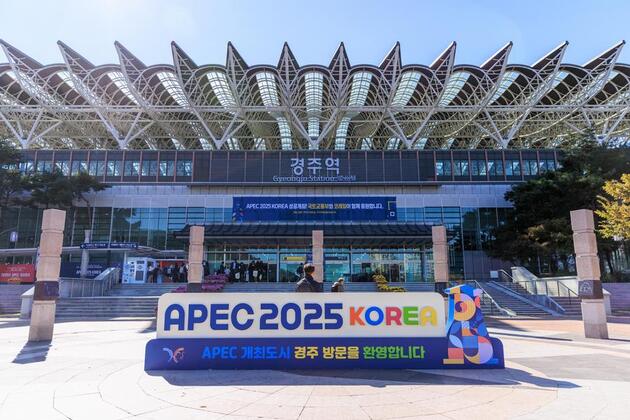Move FM Australian News

World Insights: APEC meeting injects positive energy, stability into global economy, say observers
Nov 4, 2025BEIJING, Nov. 3 (Xinhua) — At last week’s Asia-Pacific Economic Cooperation (APEC) Economic Leaders’ Meeting in Gyeongju, South Korea, the leaders reaffirmed their commitment to APEC’s founding mission and explored ways to foster global growth through more vibrant and resilient cooperation.
As the world grapples with mounting uncertainties, observers believe that the meeting’s renewed emphasis on cooperation, openness and shared prosperity has injected positive energy and stability into the global economy.
STRENGTHENING COOPERATION
The Asia-Pacific has been a crucial driver of global growth in recent decades. Home to one-third of the world’s population and nearly half of global trade, the region is defined by economic diversity and shared aspirations for development.
“APEC has emerged as the epicenter of globalization’s new dynamism,” said Stephen Ndichu, research and policy associate at Africa Policy Institute, a Nairobi-based Pan-African policy think tank.
However, the region now faces significant challenges to the global trading system, the rapid advancement of transformative technologies like AI, and demographic shifts reshaping labor markets.
“More than ever before, a collective and collaborative approach is needed to steer economic dynamism through the removal of protectionism, particularly trade tariffs,” said Lawrence Loh, director of the Center for Governance and Sustainability at the National University of Singapore Business School.
Chinese President Xi Jinping, in his speech at the first session of the 32nd APEC Economic Leaders’ Meeting, laid out five proposals to promote a universally beneficial and inclusive economic globalization and build an Asia-Pacific community, including safeguarding the multilateral trading system, building an open economic environment in the region, keeping industrial and supply chains stable and smooth, advancing the digital and green transformation of trade, as well as promoting universally beneficial and inclusive development.
“Without adherence to the multilateral and open economic systems, it will be difficult to build a unified Asia-Pacific Community that will benefit the region and the world,” Loh said.
“China’s partnership with APEC exemplifies a cooperative globalization that privileges shared advancement over competition, openness over isolation, and sustainability over short-term gain, hence charting a future where prosperity is broad-based and peace remains the guarantor of progress and development,” Ndichu said.
“By championing dialogue over discord and consultation over confrontation, China has helped safeguard the region’s political stability, thus the foundation upon which the Asia-Pacific continues to serve as the world’s principal engine of growth,” Ndichu added.
HIGH-STANDARD OPENING UP
Carlos Kuriyama, director of the APEC Policy Support Unit, said that “economic openness has helped the APEC region to benefit its people” by lifting millions of people out of poverty. “It is important that APEC economies continue to promote a free and open economic system.”
“The world’s production and value chains depend on predictability and openness,” said Ndichu.
In his speech, Xi reiterated China’s commitment to further deepening reform comprehensively and expanding high-standard opening up, and creating new opportunities for the Asia-Pacific and the world through the latest achievements of Chinese modernization.
In a period marked by rising de-globalization, “the message China is sending is a positive one,” said Tommy Xie Dongming, head of Asia Macro Research at Singapore-based OCBC Bank.
Amid concerns that the world may start to “look inward,” Xie said, “China continues to demonstrate a strong and consistent attitude toward opening up,” a commitment “particularly valuable” in the current global environment.
“Xi’s reference to China’s commitment to deepening reform and higher-level opening up provides an important signal of the intention to stay on this course against inward-looking trends globally,” said Peter Drysdale, head of the East Asian Bureau of Economic Research at the Australian National University.
“China’s hosting of APEC next year provides the opportunity to deliver on this commitment and set an example for the region and the world,” Drysdale added.
RE-ENERGIZE APEC
Established in 1989, APEC has become a dynamic engine of economic growth and one of the region’s most important forums.
“The Asia-Pacific region has indeed been the main engine of global economic growth over the past decade or two,” Xie said. “This in itself shows that the APEC model has been a successful one in facilitating trade and resource flows, and promoting investment liberalization and facilitation.”
Looking ahead, if this momentum continues, APEC “will continue to drive progress among many economies — especially those in Southeast Asia that are still in earlier stages of development,” Xie said.
“There had been some bumps in the road,” but APEC has always managed to recover from past crises, Kuriyama said. “I am very hopeful that we will be able to recover, to find a way to go back to a positive track” by reducing barriers and promoting trade and investment, he added.
“It is crucial to re-energize APEC, which has prided itself as a purpose-driven platform for promoting free trade and open economies,” Loh said. “Green and smart trade and supply chains will be most crucial in the achievement of continued economic growth for all.”
Optimistic about APEC’s future, Loh said, “Going forward, APEC can serve as a role model for the championing of holistic economic development through proper trade coordination and consultation.”


